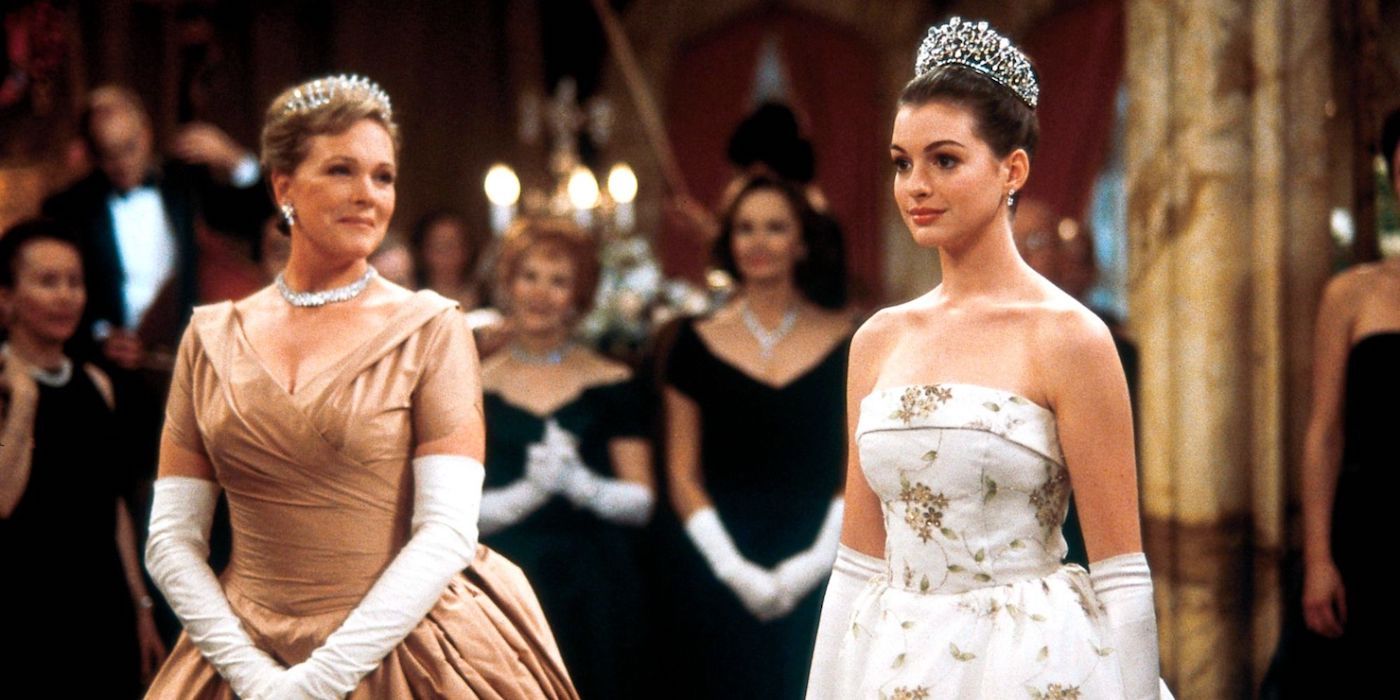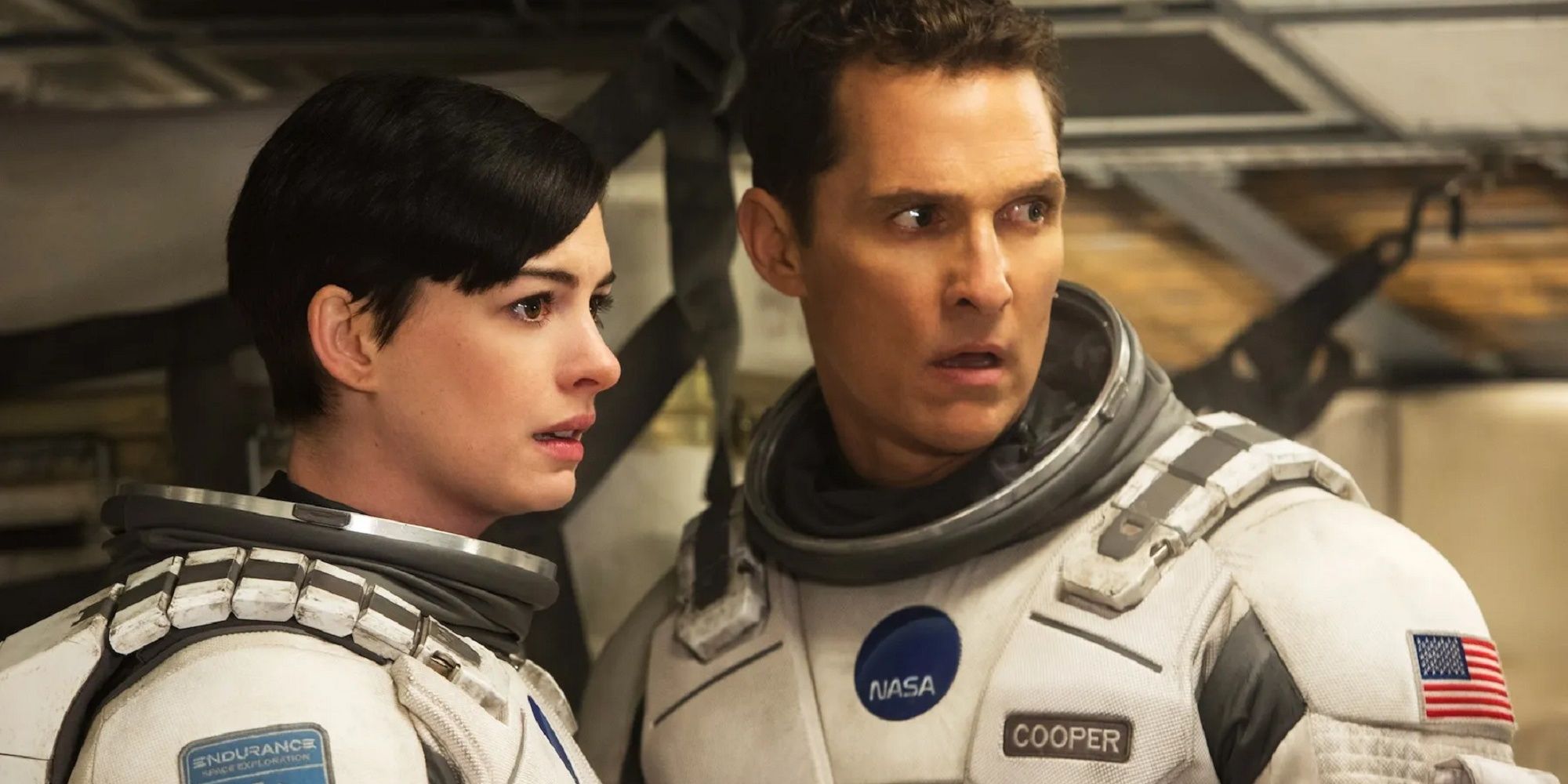Anne Hathaway proves time and time again that she is one of the most versatile actors of her generation so why has she gotten so much hate?
It is always both fascinating and disheartening to see which Hollywood icons become the target of backlash for little to know reason as Anne Hathaway has in recent years. While occasionally a poorly-worded comment or a disappointing new project can be enough to seemingly harm someone’s reputation, the Internet often turns its wrath on certain stars simply because they are popular. Anne Hathaway has won an Oscar (for Les Miserables), starred in many acclaimed and successful films, and had a recent comeback in independent films. It’s truly a baffling case in which she never should have gotten the hate in the first place.
Like many actresses of her generation, Anne Hathaway was a Disney star who had to do years of more serious work to be treated seriously by the industry. While romantic comedies are much more demanding for performers than it may seem, Hathaway wasn’t seen as a legitimate actress until she started making bolder choices, working with established auteur filmmakers. It’s here where Hathaway truly showed her range, and it’s impressive that she’s managed to navigate through different genres as of late. Between her recent television role on Apple TV+’s WeCrashed, her heartbreaking role in James Gray’s underrated autobiographical film Armageddon Time, and her upcoming work with William Oldroyd on Eileen, it’s clear that Hathaway is making a comeback, even though she’s never truly left.
Anne Hathaway Has Been a Maverick Since the Beginning
The Princess Diaries is not a movie that should have worked on paper. There have been more than a few attempts to tell live-action versions of beloved fairy tales, and generally the consensus has been that these stories work better in animation. The Princess Diaries had to have a modern perspective of the genre without losing its PG audience, yet also had to satisfy audiences that wanted to see a legitimate rom-com. It’s basically a miracle that the film worked, yet it did so because of Hathaway’s magnetic personality. She has a bubbly sense of charisma as the empathetic teenager Mia Thermopolis, capturing the humble nature of good leadership that made her truly worthy of becoming a princess.
While it’s impressive that Hathaway was able to lead a major film in her debut role, it’s even more incredible to see how quickly Hathaway maintained, and then subverted that same image. Although Hathaway followed up The Princess Diaries with the similarly successful Cinderella adaptation Ella Enchanted, she recognized the stigma that would come with replicating the same cutesy character once she had aged out of the roles. There’s a short lifespan in the careers of young breakout stars, as it’s easy for their profile to decline if they are unable to show a diversity in their work.
Hathaway took on several roles that emphasized her dramatic abilities; while The Princess Diaries and Ella Enchanted take place in a magical form of reality, that didn’t mean that Hathaway couldn’t bring maturity and humanity to her performances. While Havoc ultimately didn’t become a classic of any sorts, it showed how committed Hathaway was to edgy, potentially upsetting material. However, she did get the chance to start in a masterpiece with her brief, yet unforgettable turn in Ang Lee’s Brokeback Mountain; in a role that requires her to show quiet dignity and unacknowledged heartbreak, Hathaway exemplified the unspoken yearning of a woman harboring a long kept secret.
Anne Hathaway Branches Out from Disney Starlet
While her early projects could be described as rom-coms of sorts, they were more situational in nature, and didn’t require Hathaway herself to show how humorous she could be. However, that didn’t mean that she didn’t have a much snarkier sense of humor, and her subsequent roles in The Devil Wears Prada and Get Smart proved she could go toe-to-toe with industry veterans. Trading verbal spars with Meryl Streep and doing physical gags with Steve Carell isn’t easy, but Hathaway managed to hold her own.
Hathaway’s rom-com work is notable, as she was able to even be the best part of generic projects like Love & Other Drugs and Valentine’s Day. However, it was the dramatic strength she showed in Jonathan Demme’s modern classic Rachel Getting Married that made her one of the best of her generation. Demme’s elegant, piercingly personal study of a woman reconnecting with her family after emerging from rehab is the type of film that only works if the performance at its center is captivating; Hathaway brought an unflinching, yet subdued elegance to the role that captured Rachel’s imperfect, yet sincere attempts at self-improvement.
It wasn’t long before the industry had to recognize her talents in a major way. 2012 was arguably the most important of her career, as she took on the highly anticipated role of Selina Kyle in Christopher Nolan’s The Dark Knight Rises. It was going to be a challenge for any actress to top Michelle Pfeiffer’s culturally-defining work as Catwoman in Batman Returns, but Hathaway managed to take a different angle on the femme fatale with a heart of gold; she even managed to add a bit of humor to Nolan’s otherwise bleak trilogy. While opinions vary on Tom Hooper’s Les Miserables, Hathaway’s show stopping performance as Fantine is simply heartbreaking. The brief, yet essential performance earned Hathaway a very well-deserved Academy Award for Best Supporting Actress.
Anne Hathway Shows Her Range
It’s unfortunate that actors are often judged based on the success of their projects, and not necessarily their work on them. Hathaway took some bolder risks later on, and managed to give interesting performances despite the quality of the project. She added a lot of needed charisma to Nancy Meyers’ The Intern, certainly committed to the material in the Alice in Wonderland films, and even managed to make Nolan’s most bloated dialogue sound compelling in Interstellar. Each of these films has its passionate defenders, so there’s hope that Hathaway’s work has at least found its audience.
Thankfully, Hathaway has reached the point in her career where she can truly take on passion projects. Between using a kaiju story as a metaphor for alcoholism in Colossal, engaging in an important discussion about the DuPont scandal in Dark Waters, and humanizing a complex working class mother in Armageddon Time, Hathaway’s enthusiasm for non-mainstream projects has lead to the most interesting period of her career.
It’s unfortunate that Anne Hathaway has received so much blowback; perhaps critics took issue with the fact that she was in Robert Zemeckis’ The Witches or the disastrous Netflix Sundance vehicle The Last Thing He Wanted, but her performances in either of those streaming bombs shouldn’t be conflated with their negative quality overall. Perhaps the Internet just seemingly picks an unassuming star out of a hat to unnecessarily hate on, but Hathaway continues to be one of the best and most dynamic actresses of her generation.










